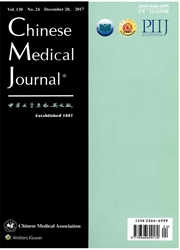

 中文摘要:
中文摘要:
煽动性的肠疾病(IBD ) 是包括中国在亚洲增加的流行的世界范围的肠的免疫者不正常的疾病。它是有未知原因的胃肠的道的长期的疾病。Exosomes 是在各种各样的身体液体的小泡。他们有 40-120 的直径 ? nm,并且他们的功能之一是各种各样的物质的长途的转移。在这研究,我们与 IBD 并且在健康控制在病人调查了唾液的 exosomes 的内容与 IBD 在病人探索新 biomarker。在这研究,整个口水与 IBD 从病人被获得(ulcerative 大肠炎(UC ) , n ?=? 37;Crohns 疾病(CD ) , n ?=? 11 ) 并且显然健康的个人(HC, n ?=? 10 ) 。唾液的 exosomes 从样品被提取,并且在 exosomes 以内的蛋白质被液体用色层法分离团分光计(LC-MS/MS ) 识别。结果证明超过 2000 蛋白质与 IBD 从病人在唾液的 exosomes 被检测。通过基因本体论分析,我们发现(PSMA7 ) proteasome 子单元 alpha 类型 7 与 IBD 和健康控制显示出病人之间的特别显著的差别,因为它的表达式水平在 CD 和 UC 组是高得多的。这 exosomal 蛋白质与 proteasome 活动和煽动性的回答有关。我们因此断定在这研究,唾液的 exosomal PSMA7 在在从有 IBD 的题目的唾液的 exosomes 的高水平是在场的。免除病人 colonoscopy 的疼痛能是很有希望的 biomarker。
 英文摘要:
英文摘要:
Inflammatory bowel disease (IBD) is an intestinal immune-dysfunctional disease worldwide whose prevalence increasing in Asia including China. It is a chronic disease of the gastrointestinal tract with unknown cause. Exosomes are small vesicles in various body fluids. They have diameters of 40-120 nm, and one of their functions is long-distance transfer of various sub- stances. In this study, we investigated the contents of salivary exosomes in patients with IBD and in healthy controls to explore a new biomarker in patients with IBD. In this study, whole saliva was obtained from patients with IBD (ulcerative colitis (UC), n = 37; Crohn's disease (CD), n = 11) and apparently healthy individuals (HC, n = 10). Salivary exosomes were extracted from samples, and the proteins within the exosomes were iden- tified by liquid chromatograph-mass spectrometer (LC- MS/MS). The results showed that more than 2000 proteins were detected in salivary exosomes from patients with IBD. Through gene ontology analysis, we found that proteasome subunit alpha type 7 (PSMA7) showed especially marked differences between patients with IBD and the healthy controls, in that its expression level was much higher in the CD and UC groups. This exosomal protein is related to proteasome activity and inflamma- tory responses. So we conclude that in this research,salivary exosomal PSMA7 was present at high levels in salivary exosomes from subjects with IBD. It can be a very promising biomarker to release the patients from the pain of colonoscopy.
 同期刊论文项目
同期刊论文项目
 同项目期刊论文
同项目期刊论文
 期刊信息
期刊信息
